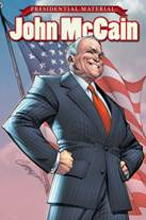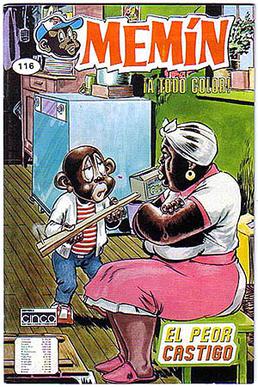Thanks to Mike Rhode, who drew my attention to
this article on the growing acceptance of comics as worthy of study. A Duke graduate student is quoted. Throw in the Harvard scholar from a recent
PMLA article and it seems that we've got a case of the prestige going on. Despite the fact that other universities have offered courses on comics for years, there's just something about it that makes it "exciting and new" when we can attach an "Ivy" or "
Ivyesque" to it. Frankly, I don't think comics need scholars from elite private schools to lend them legitimacy, but I suppose we take what we can get in the larger scheme of things. I'm certainly not knocking any current or future comics scholars from good universities (or bad ones either), I'm just saying the "news" here isn't as new as the story might lead one to believe.
Further, this "perpetual novelty" does hurt the field a bit, I think. What happens when this line of thinking spins circles without advancing is that young scholars repeatedly feel like they've "discovered" comics scholarship for the first time, and that they're among the early academics to be in on the hot, new secret. I've been there myself. This can work as a negative, despite the excitement and enthusiasm it engenders, because it has the potential to block collaboration and sharing among scholars. Too many young comics scholars seem to feel a sense of ownership over the realm of comics scholarship, like they're hoarding a secret and must keep it to themselves so that they may eventually enlighten academia with their comic book scholarship discoveries. "Thanks, Captain Columbus, but the continent was already there and known to many before you mistook it for India."
Thank goodness there are groups and conferences out there that can help comics scholars realize they're part of something with history and legacy -- but if one is so closed off in his/her excitement and feelings of ownership, one may never seek out such entities. I've seen it happen with many undergraduates and graduate students. They come to me seeking advice and resources, only to really want their own narrowed list of
weblinks, etc., that make up their knowledge base affirmed. Acknowledging that other people have been studying comics for years,
afterall, means that that sense of belonging must move to a sense of sharing. Like I said, I've been there myself, so I'm sympathetic, if not a little weary of the phenomena.
And then there's
this story about "
tweens" (worst word ever. When I was growing up, a tween was the fleshy space between one's asshole and his/her genitalia. "Tween" and "
Tweener" will always hold that ass-
ociation for me. Why not just call
pre-teens "The Walking Taint" or "Yon Newly Stubbly
Choded Ones"?) flocking to graphic novels. Scott
McCloud is quoted and the whole "comics vs. novel" thing is rehashed.
Oh man. I just read over this post. Am I becoming a curmudgeon already?? At the ripe age of 30-something? "Gasp!" he said, as he felt a cold, desperate sense of his own
wizened, hoary morality creep up his spine, from deep down in his twee -- Nah, too easy. ;)
 Don Leibold, a colleague of mine and a contributor to Building Literacy Connections with Graphic Novels, is completing his masters thesis on comics and literacy and would love your help, if you're a comics and literacy-minded person. He's set up a very brief survey, and I encourage you to fill it out by clicking here and following the simple instructions.
Don Leibold, a colleague of mine and a contributor to Building Literacy Connections with Graphic Novels, is completing his masters thesis on comics and literacy and would love your help, if you're a comics and literacy-minded person. He's set up a very brief survey, and I encourage you to fill it out by clicking here and following the simple instructions.


